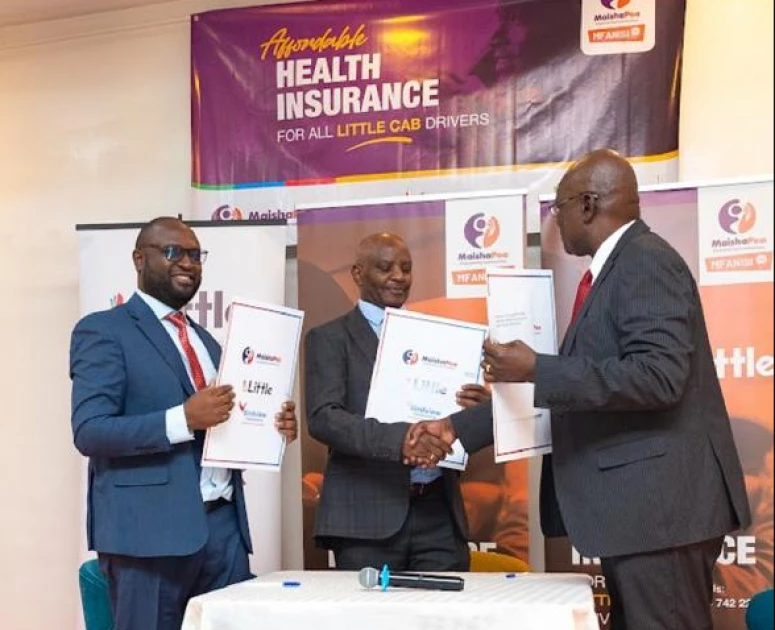Little, Maisha Poa, and BirdView launch health insurance plan for digital taxi drivers

Little Cab Deputy CEO Fred Okwaro exchanges partnership documents that will enable digital drivers drivers access medical cover with James Kimani, CEO of Birdview Microinsurance; Looking on is John Paul Otieno, Maisha Poa CEO.

Audio By Carbonatix
With medical insurance penetration in Kenya
still under 10%, largely due to high costs and limited access, a new
partnership seeks to address the gap by targeting a critical yet underserved
segment of the workforce—digital taxi drivers.
A three-way agreement between ride-hailing
company Little, Maisha Poa Insurance, and BirdView Insurance has introduced
Mfanisi Go, a health insurance plan designed specifically for drivers operating
on Little’s platform.
The initiative aims to provide affordable
and accessible medical cover, starting at KSh 82 per day or KSh 493 per week.
The product targets over 150,000 drivers on the Little network, offering
coverage without the need for traditional paperwork or upfront payments.
Mfanisi Go is underwritten by BirdView
Insurance and structured by Maisha Poa Insurance. The plan allows drivers to
pay in installments over eight months, covering themselves and up to five
dependents. It includes access to a network of over 100 hospitals and clinics
across major urban centers.
Enrollment and management of the insurance
are integrated into the Little app, with payments automatically deducted from
drivers’ trip earnings to reduce administrative burden and support consistent
coverage.
The plan also includes a telemedicine
feature, enabling drivers to consult licensed doctors remotely at no additional
cost.
“We are aware of the daily challenges our
drivers face. Mfanisi Go is intended to ease one of their biggest
concerns—access to healthcare,” said Fred Okwaro, Deputy CEO at Little.
John Paul Otieno, CEO of Maisha Poa
Insurance, noted: “Our goal is to make health insurance more inclusive by
addressing the real-world needs of those typically excluded from traditional
coverage models.”
This collaboration represents a step toward
extending formal health protections to Kenya’s gig economy workforce, which has
historically lacked consistent access to such benefits.


Leave a Comment